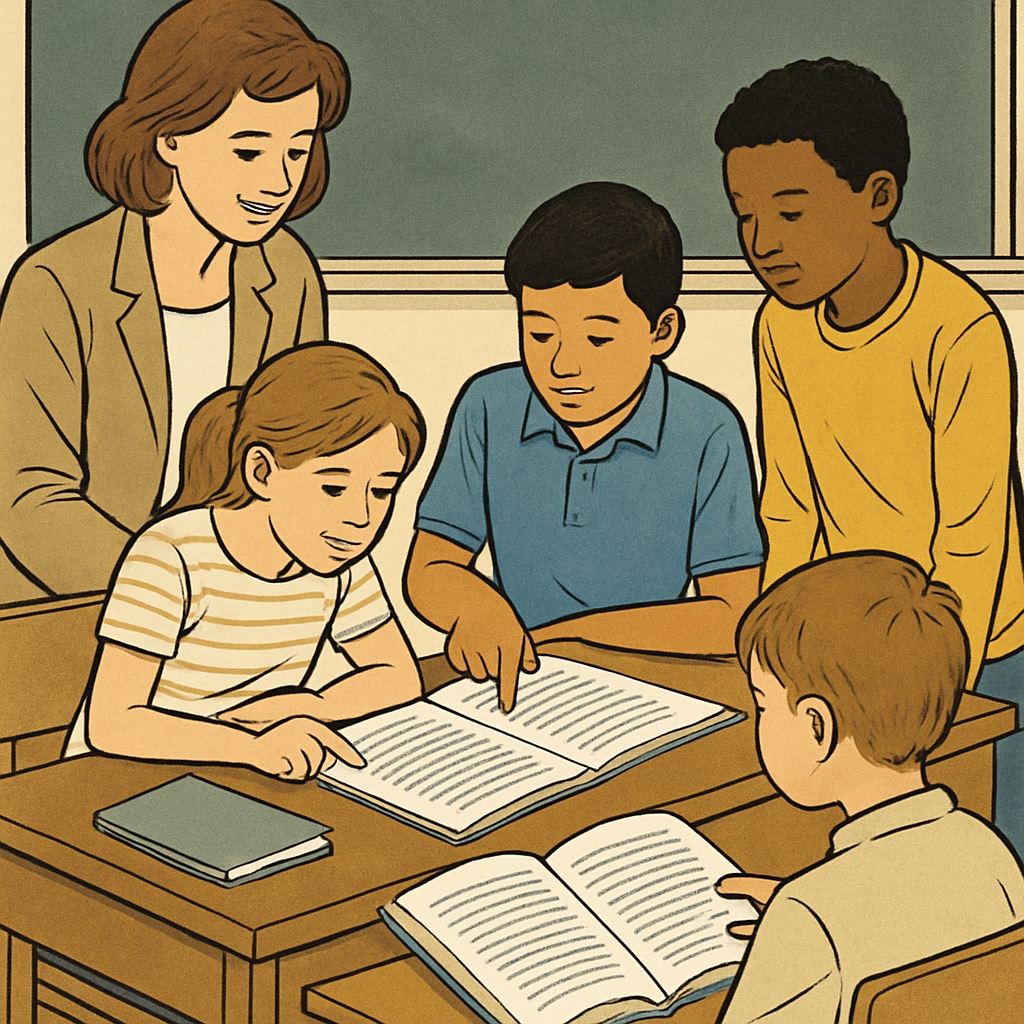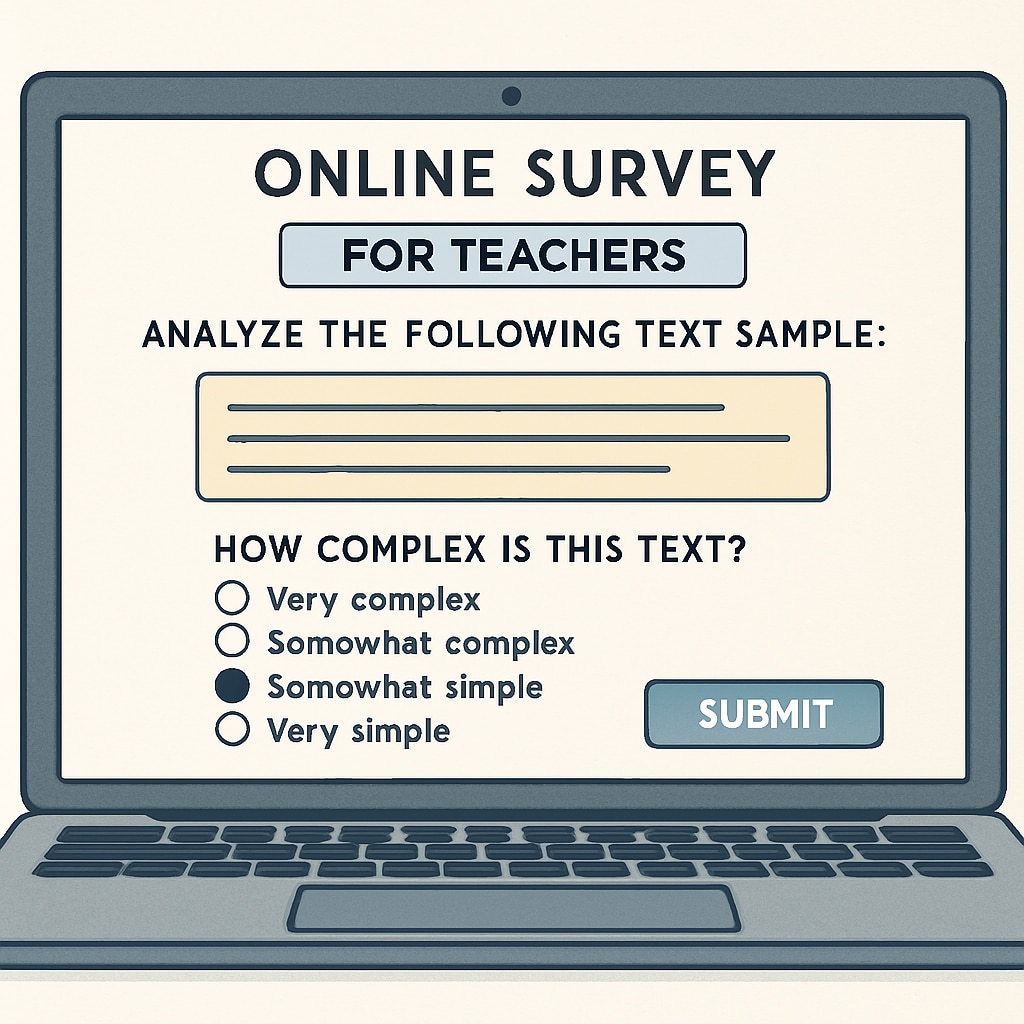Reading comprehension is the foundation of educational success, and understanding text complexity plays a critical role in refining how students interact with written material. K-12 teachers now have an exciting opportunity to become key contributors to this field by participating as volunteers in research studies. By dedicating just 30 minutes of their time, teachers can provide invaluable insights into how text complexity impacts student literacy, ensuring future generations have the tools they need to thrive academically.

The Importance of Teacher Involvement in Text Complexity Research
Teachers are uniquely positioned to assess text complexity due to their daily interactions with diverse student groups. Their professional expertise allows them to evaluate how specific texts align with varying reading levels and cognitive abilities. This makes educators an essential resource in research aimed at better understanding the relationship between text complexity and reading comprehension.
For example, studies on reading comprehension have consistently shown that appropriately challenging texts promote critical thinking and vocabulary growth. However, an overly complex or overly simplified text can hinder learning. By participating in these studies, teachers can help researchers refine the criteria used to classify texts, ensuring that instructional materials meet the needs of all learners.
What Does Participation Entail?
Joining a text complexity research initiative is both simple and impactful. Teachers are asked to review provided texts and offer their professional judgment on aspects such as readability, sentence structure, and thematic appropriateness. This process takes approximately 30 minutes, making it accessible for busy educators.
Participation can be conducted entirely online, allowing teachers from various locations to contribute. As a result, researchers can gather a diverse range of insights, which ensures that final conclusions are inclusive and representative of real classroom dynamics.

How Does This Benefit Teachers and Students?
While the immediate focus of these studies is refining text complexity metrics, the long-term benefits extend to both teachers and students. For educators, participating in research deepens their understanding of how text complexity affects learning outcomes. This knowledge can directly inform their teaching strategies and material selection.
Students, on the other hand, benefit from curricula that are better aligned with their developmental stages. Tailored reading materials not only improve literacy skills but also enhance engagement and confidence. As a result, students are more likely to develop a lifelong love of reading.
Why Your Expertise Matters
Educational research often relies on theoretical models or algorithms to evaluate text complexity. While these methods are valuable, they lack the human insight that only experienced teachers can provide. For example, a text’s readability score might suggest that it is appropriate for a certain grade level, but only a teacher can identify subtler factors—such as cultural relevance or potential for student engagement—that influence its suitability.
By joining as a volunteer, you bring a critical perspective that bridges the gap between research and classroom realities. Your contributions help ensure that educational tools are not only evidence-based but also practical and effective.
How to Get Involved
Becoming a part of this initiative is straightforward. Interested teachers can sign up through research platforms or educational organizations coordinating these studies. Once registered, participants will receive detailed instructions and access to the materials they need to review. In most cases, the process involves completing a short survey or checklist.
For further details, you can explore resources like Britannica’s overview of reading comprehension, which delves deeper into the science of literacy development.
Make a Difference in 30 Minutes
As a teacher, you already shape the lives of your students every day. By volunteering for text complexity research, you extend your impact beyond the classroom, contributing to the broader field of education. Just 30 minutes of your time can help ensure that future teaching materials are more effective, equitable, and engaging.
Join this initiative today and be part of a movement that places teacher expertise at the heart of educational innovation. Together, we can unlock the full potential of reading comprehension for generations to come.
Readability guidance: This article uses concise paragraphs, clear transitions, and avoids excessive jargon to ensure accessibility for a broad audience. Key points are summarized in sections with headings, and external resources are provided for further exploration.


